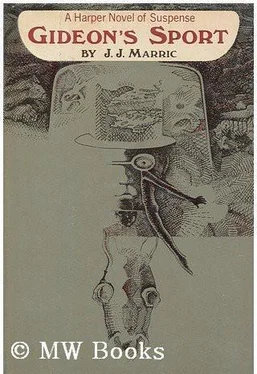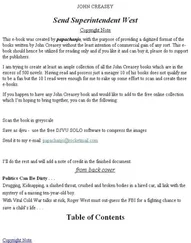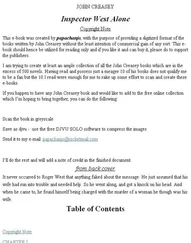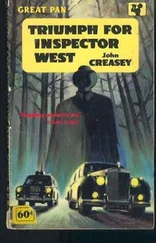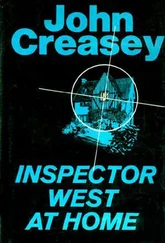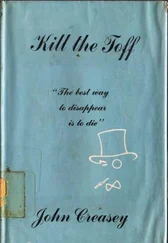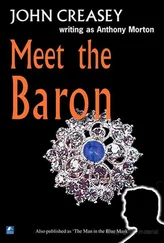John Creasey - Gideon’s Sport
Здесь есть возможность читать онлайн «John Creasey - Gideon’s Sport» весь текст электронной книги совершенно бесплатно (целиком полную версию без сокращений). В некоторых случаях можно слушать аудио, скачать через торрент в формате fb2 и присутствует краткое содержание. Жанр: Старинная литература, на русском языке. Описание произведения, (предисловие) а так же отзывы посетителей доступны на портале библиотеки ЛибКат.
- Название:Gideon’s Sport
- Автор:
- Жанр:
- Год:неизвестен
- ISBN:нет данных
- Рейтинг книги:4 / 5. Голосов: 1
-
Избранное:Добавить в избранное
- Отзывы:
-
Ваша оценка:
- 80
- 1
- 2
- 3
- 4
- 5
Gideon’s Sport: краткое содержание, описание и аннотация
Предлагаем к чтению аннотацию, описание, краткое содержание или предисловие (зависит от того, что написал сам автор книги «Gideon’s Sport»). Если вы не нашли необходимую информацию о книге — напишите в комментариях, мы постараемся отыскать её.
Gideon’s Sport — читать онлайн бесплатно полную книгу (весь текст) целиком
Ниже представлен текст книги, разбитый по страницам. Система сохранения места последней прочитанной страницы, позволяет с удобством читать онлайн бесплатно книгу «Gideon’s Sport», без необходимости каждый раз заново искать на чём Вы остановились. Поставьте закладку, и сможете в любой момент перейти на страницу, на которой закончили чтение.
Интервал:
Закладка:
“I’d like to get a complete survey of shop-lifting, bag-snatching and pick-pocket activity,” Gideon told him. “Send out a teletype to all Divisions about that, will you? I have a feeling it’s getting much worse.”
“Knowing your ‘feelings’, it probably is,” said Hobbs. “I’ll do it this morning.”
“Good.”
“Do you want me here when Lem comes?”
“No,” Gideon decided. “He’ll probably let his hair down more, if we’re alone. Right, Alec.” He pushed his chair back and stood up, wiping his forehead and moving towards the fan. “Do I owe this little gesture to you?”
Hobbs looked surprised. “The fan? No.”
“Did you get one?”
“No.”
“Must be my gremlin,” Gideon said drily.
He was mildly surprised that Hobbs didn’t go but instead moved backwards slightly, as if he had something on his mind. Before he could speak, if he were going to, the telephone rang and Gideon moved across and picked it up. It was the front desk.
“Mr. Lemaitre is on his way up, sir.”
“Right, thanks.” Gideon put the instrument down. “Lem’s on his way. Anything on your mind, Alec?”
“Nothing that won’t keep,” Hobbs said, and showed an expression almost of relief when he went out.
Gideon did not give him much thought. Hobbs was the most independent man he knew; a man who seemed to need no help from anyone, wholly self-sufficient. He wasn’t, of course; but he would talk only when he was ready. Gideon stood at the window, looking at the pageantry of the river; he was not as affected as he had been yesterday, but still affected. Then he remembered standing at this same window only a few months back, with Kate, looking out on a procession along the Embankment during a State Visit from a Commonwealth president. How was Kate? Simply enervated by the heat? There couldn’t be anything seriously the matter with her, could there?
Of course there could be. But surely the odds were against it?
He was brooding over this when there was a tap at the door leading from Hobbs’ room, and Lemaitre came in. It was precisely eleven-thirty.
At eleven-thirty exactly, Lou Willison turned into the driveway of a large private house in the Wimbledon Common area, and drove, wheels crunching on loose gravel, round to the back. It was one of a comparatively few Victorian houses still occupied by one family; a family which had in one way withdrawn from the new world in which it lived. All about were blocks of flats, houses converted into two, three or four apartments, one-time gardens of an acre or more cut up into lots on which new houses were built But The Towers remained, a relic from the past.
There was something almost Gothic about the faded red brick, the leaded windows, all shuttered — although both shutters and windows were wide open today-and the enveloping trees and dense shrubbery. Dark-leaved rhododendron and paler laurel grew thick in front of the house and all about it, as if the owners were determined to ensure that there could be no prying eyes. In actual fact the previous owner had been an old, old lady who had preferred to live in the past, and who had been wealthy enough to refuse all offers for the property. She had died only a few months before, there was some problem over probate, and the house had been offered on a furnished rental. Willison was not even slightly interested in the house or the old furniture; not even in the position, although it was very convenient for Wimbledon.
What had attracted him most was the grass tennis court.
This was surrounded not only by an unusually high wire fence, but, beyond the fence, by shrubs and trees which had grown so sturdy and thick that in places one had to fight one’s way through to reach the court. It had become a sanctuary for wild-life; for birds such as the woodpeckers and magpies rarely seen in London, for grey — and, occasionally brown — squirrels, for a family of wild cats, and for rabbits. For years, no one had ever disturbed them, and they had grown used to players on the court — relations of the old lady, who came to visit her. One of these relations was a builder whom Willison had met at a convention in Miami and with whom he had corresponded. And when Willison had mentioned that he wanted a court on which one or two players could practise in true privacy, the Englishman had at once suggested The Towers.
Willison was now installed for the summer; and behind the shrubs and trees, Barnaby Rudge could practise unseen to his heart’s content. The court had needed cutting but there was not much the matter with it, especially for the kind of practice Barnaby wanted.
Just after half-past eleven, Barnaby followed Willison into the grounds. He was astride a motor-scooter which looked absurdly small for him but was inexpensive and safe. Willison did not want anything to suggest that Barnaby had wealthy backing: it was much better to feel that he had come on his own or been sponsored by a few friends in a syndicate. He pulled up behind the car and joined Willison at a side door.
Willison was a surprising plump man, pink-complexioned, blue-eyed; a kind of grown-up cherub. He had a cupid’s bow mouth and a pleasant smile.
“Good morning, Barnaby.”
“Mr. Willison!” Barnaby positively glowed with health.
“Ready to go?”
“All ready, sir.” Barnaby simply stepped out of grey flannel pants and took a pair of white shoes off the back of the motor-scooter. Willison, in sweater and flannels, took two racquets and a dozen tennis balls out of the Jaguar, and they went on the court. For five minutes they warmed up and Willison put in some shots which were unexpectedly good, while Barnaby simply flexed his muscles and his body.
“Okay, let’s go.” Willison said at last.
Something happened to Barnaby Rudge. It showed in his expression, the sudden cold glint in his eyes, the cat-like way in which he moved. He took up his stance for serving, sent a few shots over the net which Willison just managed to return, and then began to unleash the ‘fireball’. And each time the ball seemed to leave the racquet with the velocity of a bullet, each time it whipped off the court in low trajectory. Willison did all he was there for; pick up the balls and pat them back to Barnaby, who served again and again. Every service came with such perfect co-ordination of muscles and reflexes that he had the same ‘impossible’ speed of movement as Cassius Clay had in the ring.
It was little short of miraculous.
He kept it up without stopping for twenty minutes and only twice did his serve go outside the serving area. At the end he was perspiring much less than Willison, who was gasping for breath and trying not to show too much elation. Barnaby looked very, very, content as he went to the back of the house for a shower.
As he went off, on his motor-scooter, a tall, gangling man with a cigarette dangling from his lips, watched from the other side of the road, and then walked without haste towards a telephone kiosk.
Soon, he was talking on a private line to Archibald Smith, who liked to do some of his bookmaking business in privacy, too.
CHAPTER FIVE
Quick Decision
Lemaitre’s eyes had a wild yet tired look; obviously, he was under great strain. It flashed into Gideon’s mind, as they shook hands, that he could not be far short of sixty: that the day of his retirement was not far off. Then Lemaitre dropped into a chair. The flat, black brief-case held under his arm slipped, and he stooped to retrieve it. His hair had always been sparse but Gideon hadn’t realised how pale and big his bald patch was.
“Hell of a bloody business!” he muttered, now. “I could Hang myself up by me —”
“Take it easy,” interrupted Gideon. “You don’t know that it was your fault.”
Читать дальшеИнтервал:
Закладка:
Похожие книги на «Gideon’s Sport»
Представляем Вашему вниманию похожие книги на «Gideon’s Sport» списком для выбора. Мы отобрали схожую по названию и смыслу литературу в надежде предоставить читателям больше вариантов отыскать новые, интересные, ещё непрочитанные произведения.
Обсуждение, отзывы о книге «Gideon’s Sport» и просто собственные мнения читателей. Оставьте ваши комментарии, напишите, что Вы думаете о произведении, его смысле или главных героях. Укажите что конкретно понравилось, а что нет, и почему Вы так считаете.
